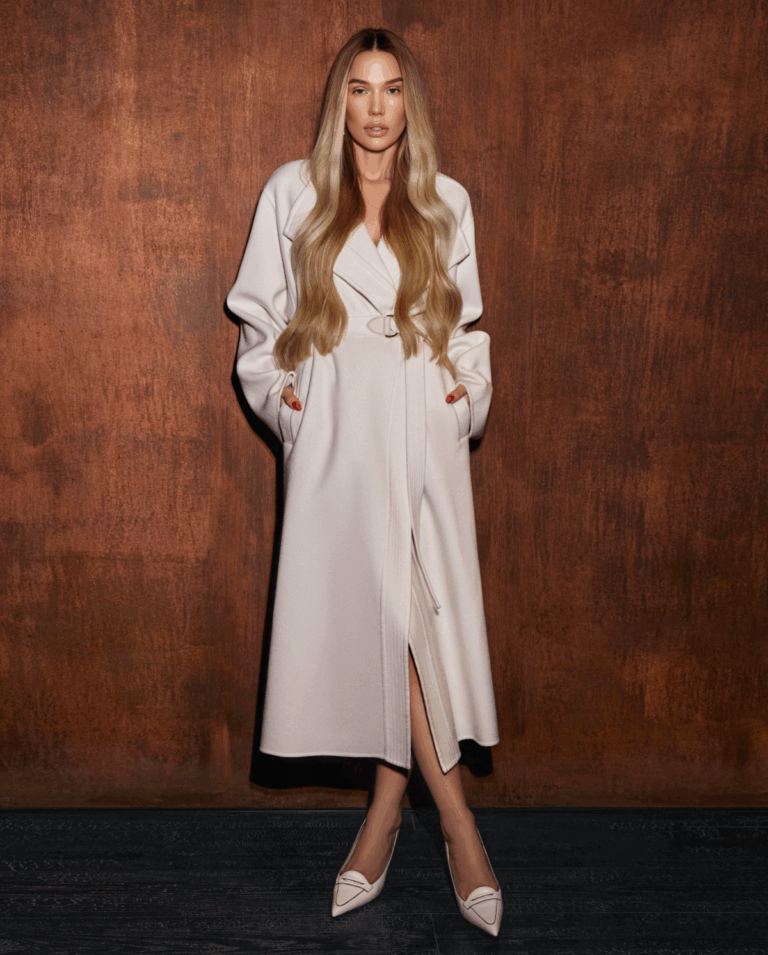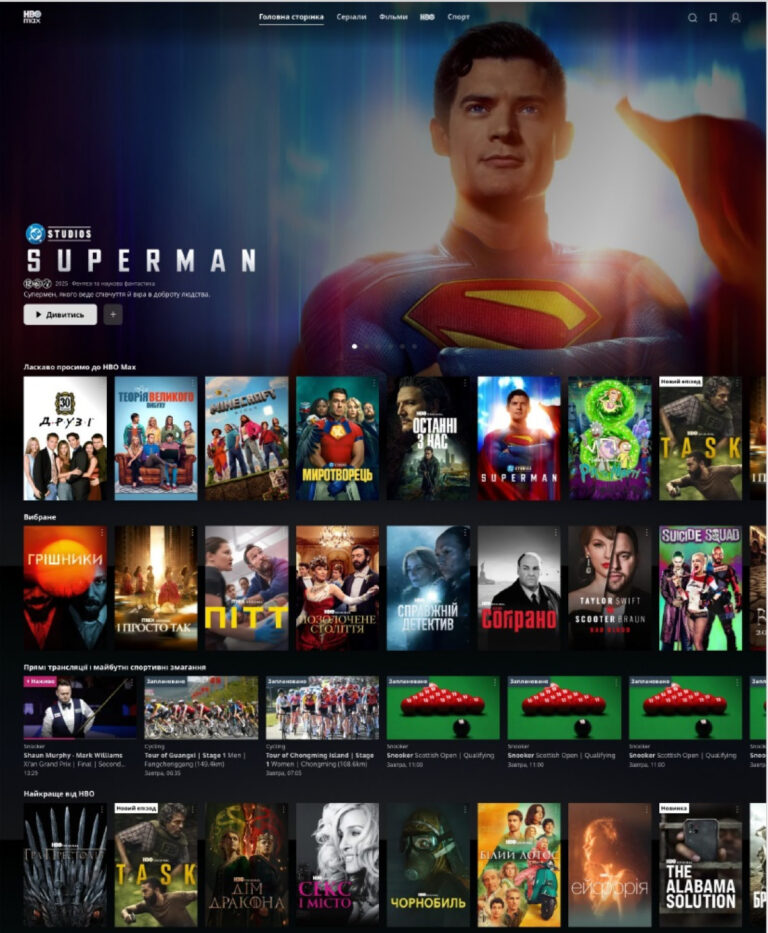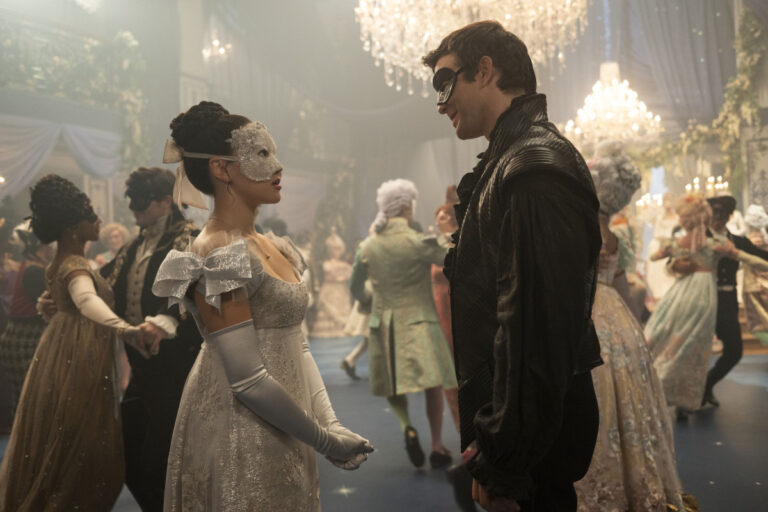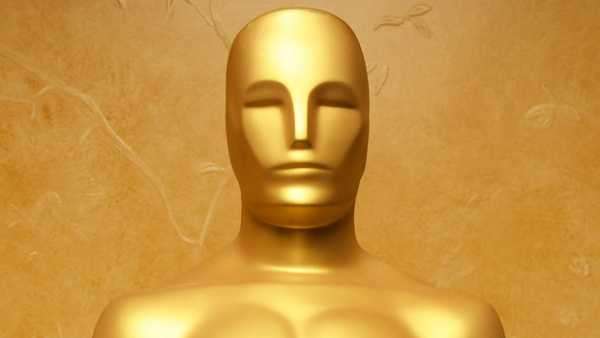
And your Oscars host for this evening is…nobody. 2021 marks the third consecutive year the Academy Awards will be without a host, and here’s why.
Lights! Camera! Action! The annual Academy Awards ceremony – with all its glamorous fashion, surprising wins, and unforgettable moments – is considered “the biggest night in Hollywood.” As such, the role of Oscars’ host was once highly revered, thought to be one of the most prestigious gigs in entertainment. Such icons like Johnny Carson, Whoopi Goldberg, Bob Hope, Steve Martin, and Chris Rock have used their turns hosting the awards show to etch their name in show-biz history. Yes, there have been a few duds in the past, but not everyone can be Billy Crystal. As the Tinsel Town prepares to celebrate all the best and brightest stars, here’s what you need to know about who hosts this year’s Academy Awards. Or, in the case of 2021, who isn’t.
Why the 2021 Oscars Will Not Have A Host
Going into 2021, there was some speculation as to who should host that year’s Oscars. Would Maya Rudolph and Kristen Wiig get the gig? Would they hand the role over to “outside the box” choices like Awkwafina, Laverna Cox, or Tariq Khan and Tom O’Neil? Would they fall back on an old classic like Billy Crystal, who Gold Derby had as their No. 1 pick for the host. It turns out the answer would be none of the above.
For the third year in a row, the Oscars are going host free. At least, they won’t have a host in the traditional sense. Actually, it might be best if you don’t even use that term around the show’s co-producer, Steven Soderbergh. “The way we are going to use presenters this year is going to be different,” he told Vanity Fair. Soderbergh – the director of films like Sex, Lies and Videotape, Erin Brockovich, and the Ocean’s Eleven series – will join his longtime collaborator Stacey Sher and “pandemic-era-awards-show expert” Jesse Collins to produce the show. The trio promise that this year’s ceremony will “feel like a film” instead of an awards show (“Everybody will be a character: Every nominee, every person that gives an award, will feel like characters in a film,” says Soderbergh”) and that means: no host.
“[We] haven’t even used the word host, frankly,” said Soderbergh, who won the Academy Award for Best Director for 2000’s Traffic. “We’re calling it our ensemble because there’s a sort of overarching structure to the evening that they all participate in. So it’s just that word, the H word, just really doesn’t apply to what we’re doing.”
Soderbergh credits the COVID-19 outbreak for this “opportunity to try some stuff,” telling Vanity Fair that “if this wasn’t a pandemic year, a lot of the things we’re going to try wouldn’t get approved by the board, or maybe even by ABC. So it’s kind of a strange alignment of planets when they approached me. There’s an opportunity here to rebuild what this show should look and feel like.” In the end, he says they’re hoping to produce a “three-hour movie in which some awards are given out.”
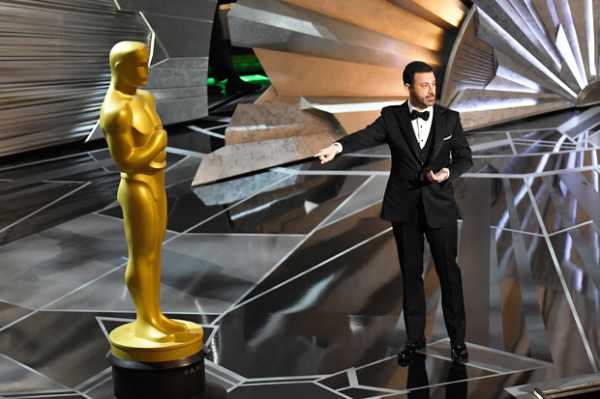
Jimmy Kimmel during the 2018 Academy Awards (Shutterstock)
The 2021 ceremony’s “strange alignment” is apparently following a course set in 2019, when the Oscars went host free for the first time in thirty years after Kevin Hart stepped down from the role. Kevin was picked to host the 91st Academy Awards, but the backlash over ten-year-old homophobic social media posts ultimately led to his resignation. “I’m sorry that I hurt people. I am evolving and want to continue to do so,” the comedian tweeted in December 2018. “My goal is to bring people together, not tear us apart. Much love & appreciation to the Academy. I hope we can meet again.”
With no host, the 2019 ceremony relied on its cast of A-list celebrity presenters. Tina Fey and Amy Pohler – who hosted the Golden Globes from 2013-2015 to critical acclaim – were joined by Maya Rudolph to get the ceremony off to a positive start. The momentum carried throughout the night and resulted in a show that was 30 minutes shorter, per Deadline, and more popular. The telecast saw a 12% increase in viewers.
So, the 92nd Academy Awards would follow suit. Karey Burke, entertainment president for ABC, announced at the TCA Press Tour that there would be “no traditional host” at the 2020 ceremony, seemingly in hopes of replicating the prior year’s success. “[It will have] huge entertainment values, big musical numbers, comedy, and star power.” However, the gambit failed to pay off. The 2020 ceremony saw a 20% decrease in the previous year’s ratings, per The Hollywood Reporter, an all-time low for the ceremony.
Without a scandal like Kevin Hart’s resignation to pique viewers’ interests – and across the board, award shows that year were pulling in some abysmal ratings, per THR – the 2020 show failed to live up to the hype. Viewers will have to see if the 2021 ceremony soars where the previous year stumbled.
Year In Review
Whether Soderbergh, Sher, and Collins were given the keys to the kingdom or not, the 2021 Oscars were going to look different from any other Academy Awards in recent history due to COVID-19. Though the 2020 BET Awards seemingly managed to make it work, with its pre-recorded, socially-distanced set-up, live shows – held in empty arenas or in front of virtual audiences — failed to find their footing. Even Tina Fey and Amy Poehler’s attempt to bi-coastally host the 2021 Golden Globes fell flat. It wouldn’t be until the 2021 Grammy Awards – which earned positive reviews but record-low ratings – that a COVID-era awards show would seemingly get it right.
As for the 93 rd Academy Awards, the coronavirus pandemic forced the Academy of Motion Picture Arts and Sciences to make a major change to its nomination process. The COVID-19 pandemic has forced countless movies to be delayed – Vulture has the ever-growing list – and many films have turned to streaming platforms in this time of need.
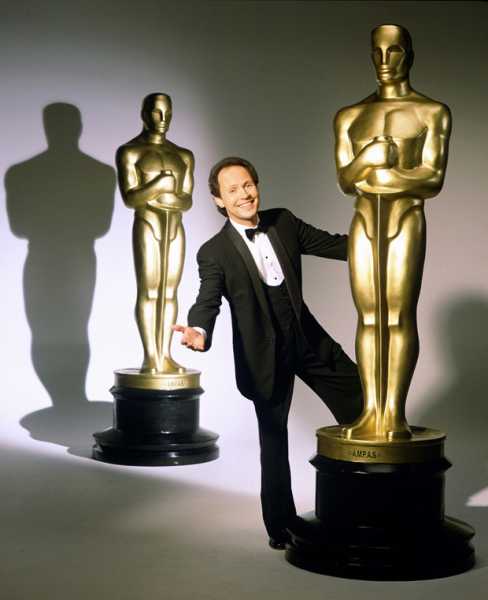
Billy Crystal, who has became synonymous with ‘Oscar Host’ by hosting it nine times during 1990-2012.
Normally, the Academy required that a film have a theatrical run (at least seven consecutive days in a commercial theater in Los Angeles County, per The New York Times) to qualify for the awards. But, for the past year, cinemas have been closed due to COVID-19 restrictions. So, the academy passed an exception for 2021, allowing streaming movies to bypass the theatrical run and remain eligible. However, this only applies to films that “had a previously planned theatrical release,” per The New York Times, and most of the films in the Best Picture category were released in a limited, one-week theatrical run, anyway (even though few viewers, if any, risked seeing the films in a cinema.)
The 2021 ceremony brings some exciting changes. Whereas no women were nominated for Best Director in 2021, Emerald Fennel (Promising Young Woman) and Chloé Zhao (Nomadland) scored nominations. They’ll compete against David Fincher (Mank), Thomas Vinterberg (Another Round), and Lee Isaac Chung (Mimari).
The ceremony will also be the last chance to honor Chadwick Boseman. The star, who passed away in 2020 after a long battle with cancer, scored a posthumous Best Actor nod for his role in Ma Rainey’s Black Bottom. It’s a stacked field of nominees, which includes Riz Ahmed (Sound of Metal), Anthony Hopkins (The Father), Steven Yeun (Minari), and Gary Oldman (Mank).
(H2) Notable Past Host
Notable Past Hosts
The last person to host the Oscars was Jimmy Kimmel in 2018, and if Soderbergh’s experiment works, Kimmell will be the last person to host the Oscars. But, as more vaccines roll out and the world navigates the new, post-COVID “normal,” viewers may not have the patience to watch a “three-hour movie in which some awards are given out.” There may be a reactionary movement to a more party atmosphere – think, as music artist Ben Schuller puts it, the “new roaring 20s” – which, in that case, will the Oscars will need a host.
There have been some incredible and amazing Oscars hosts in the past. The previously mentioned Billy Crystal hosted the show nine times between 1990 and 2012, per Vogue, and his laid-back, jokey hosting style came off as heartwarming and earnest. This made Billy seem like an average person in a room full of larger-than-life celebrities, which only added to his likeability. (Though, don’t let the number fool you. Billy doesn’t hold the record for most frequent host – the late Bob Hope has that honor, hosting the show 19 times.)
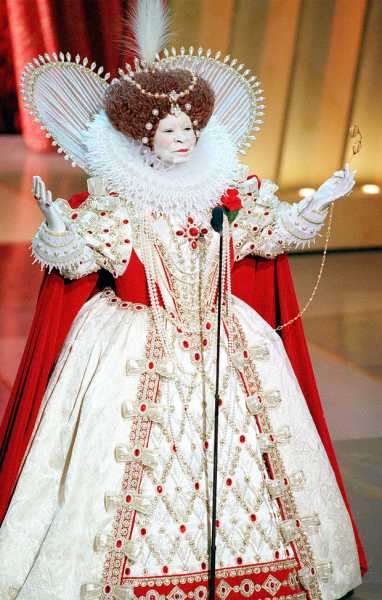
Whoopi Goldberg during her tenure as the host of the 71st Academy Awards in 1999 (Shutterstock)
Billy’s fellow comedy icon Whoopi Goldberg hosted the show four times. Her appearance as Queen Elizabeth (inspired by Cate Blanchett’s role in Elizabeth) in 1999 is considered an iconic image in the ceremony’s history. Chris Rock’s 2005 appearance fell flat, but his return in 2016, following the #OscarsSoWhite controversy, earned rave reviews.
However, there have been some hosts who have been, let’s say, less successful than others. Chevy Chase began the 1988 Oscars by saying, “Good evening, Hollywood phonies.” It was all downhill from there. Seth MacFarlane was picked to host the 85th Academy Awards in 2013, and his opening monologue featured Seth and the Gay Men’s Chorus of Los Angeles singing “We Saw Your Boobs,” a song about actresses who did topless scenes in films. Though the context was that this scene was from an alternative future where Seth did everything wrong as a host, the satire was lost. Despite this song being called sexist and misogynistic, Seth claimed that the Oscars asked him to come back. He declined, resulting in “We Saw Your Boobs” being the lasting memory of his hosting tenure.
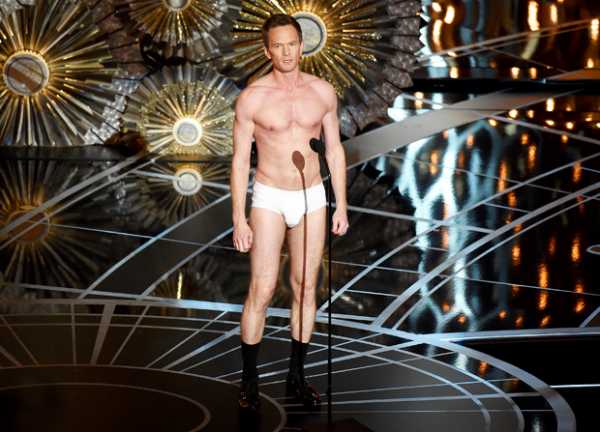
Neil Patrick Harris hosted the Oscars in 2015. His performance received mixed reviews. Hard to believe, right? (Shutterstock)
Similarly, James Franco and Anne Hathaway failed to ignite the hearts and minds of viewers when they cohosted 2011. They were blasted for a lack of chemistry, and an “uneasy mix of Hathaway’s cloying perkiness and Franco’s disconnected grinning,” per The Independent. The most memorable moment of the night is when James Franco wore a dress, and that’s perhaps for the best.
Perhaps going host-less isn’t such a bad idea?
Sourse: hollywoodlife.com


